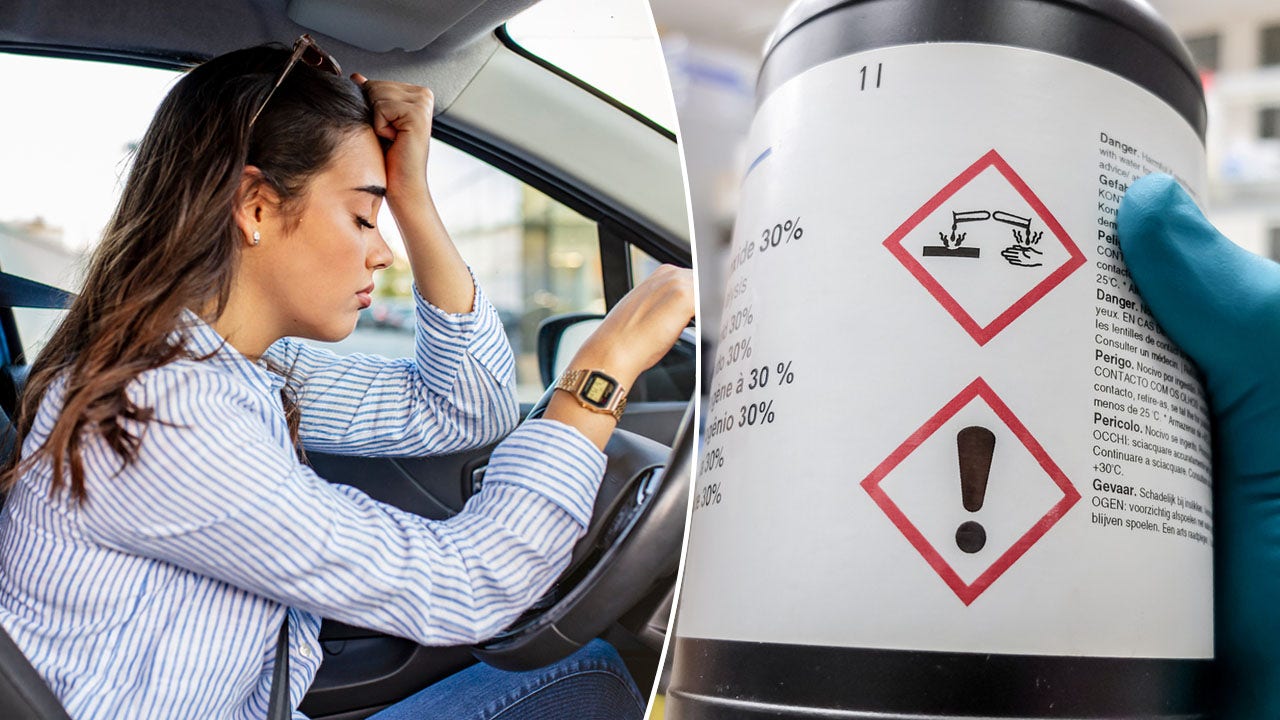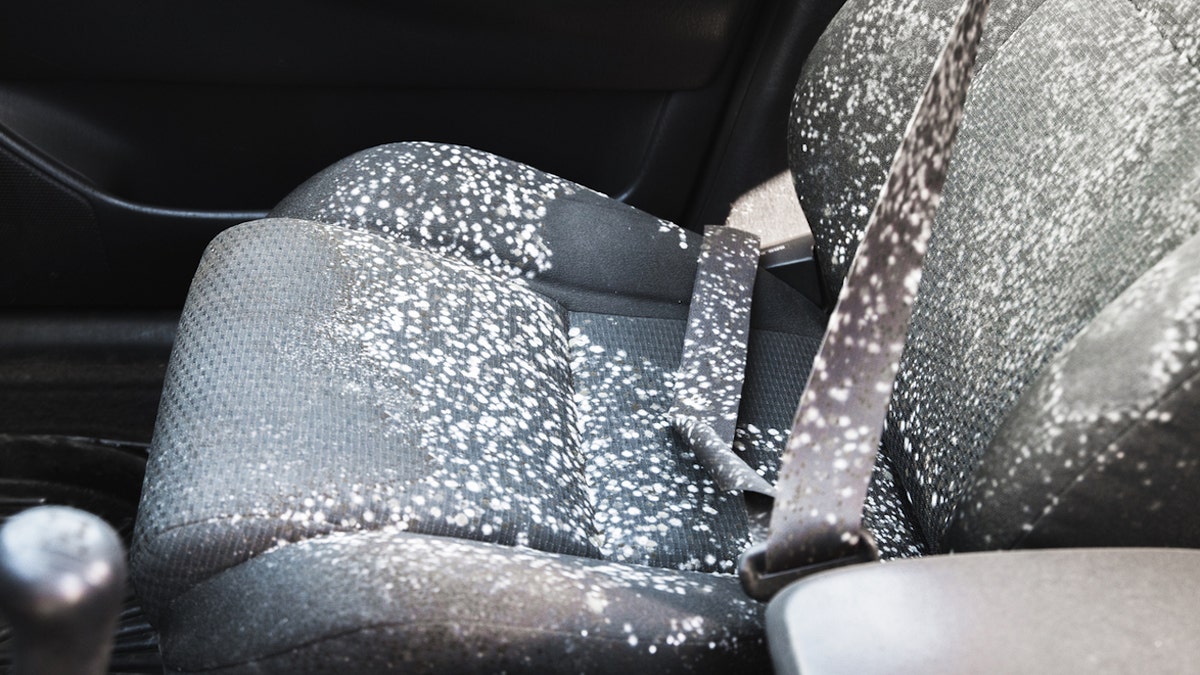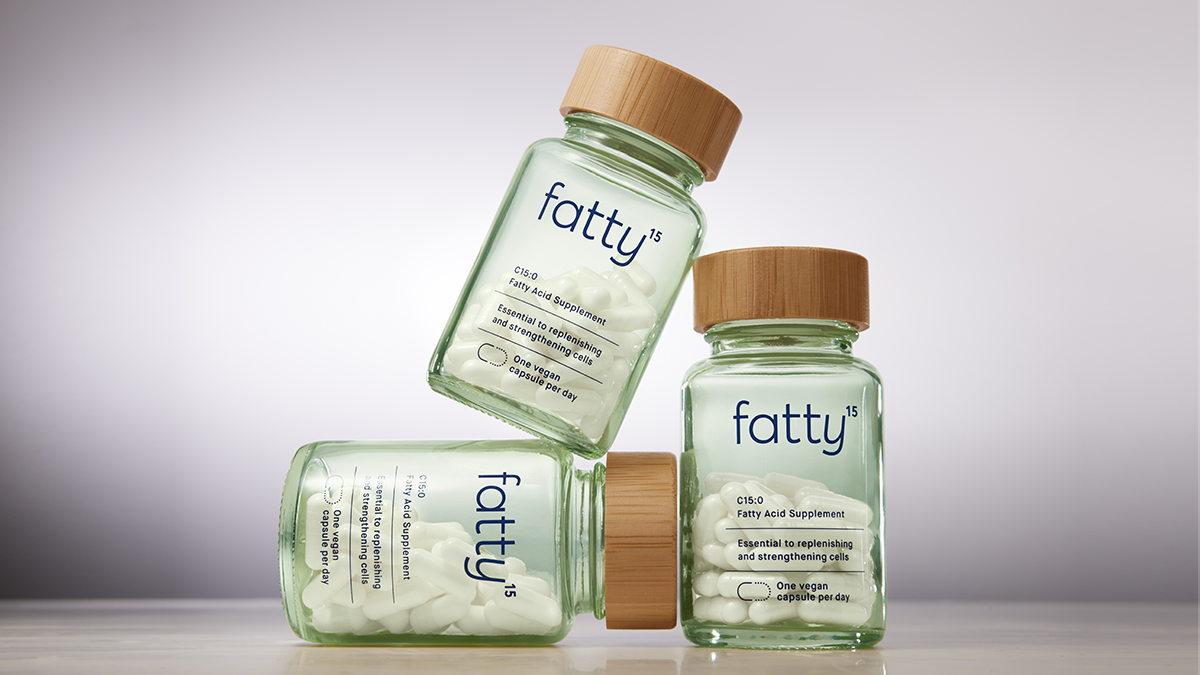Health
Eating one type of fruit regularly could reduce diabetes risk in women, study suggests: 'Incredibly healthy'

Eating avocados could be helpful when it comes to avoiding diabetes.
A new study published in the Journal of the Academy of Nutrition and Dietetics identified a link between eating avocados and reduced diabetes risk in some Mexican adults.
Researchers studied the dietary habits and diabetes diagnosis data from the Mexican National Survey of Health and Nutrition in the years 2012, 2016 and 2018.
BROWN SEAWEED CONSUMPTION COULD HELP MANAGE AND PREVENT TYPE 2 DIABETES, STUDY SHOWS
Of the 25,640 qualified respondents aged 20 and older, approximately 59% were female and more than 60% had abdominal obesity.
About 45% of participants reported eating avocados daily — 34.7 grams on average for men, and 29.8 grams for women.
Avocado eaters of both genders have an overall more nutritious diet, according to Medical News Today. (iStock)
“Among women, this study showed that compared to avocado non-consumers, avocado consumers had more than 20% lower odds of diabetes even after adjusting for various factors such as age, education level, body weight, physical activity and more,” said study author Feon Cheng, PhD, a nutrition epidemiologist at the Avocado Nutrition Center in Mission Viejo, California, in a statement to Fox News Digital.
(Cheng noted that her affiliation with the Avocado Nutrition Center did not influence the research methods or analysis.)
TYPE 2 DIABETES A MUCH GREATER RISK FOR ‘NIGHT OWLS’ THAN FOR EARLY BIRDS, A ‘STARTLING’ NEW STUDY FINDS
“This research is especially important considering that Hispanic adults are more likely to develop diabetes in their lifetime than U.S. adults overall and at a younger age,” Cheng said.
The same diabetes-reducing effects were not observed in men.
“It is interesting that there were differences between men and women, which may be attributed to different lifestyle factors,” Cheng noted.

Diabetes-reducing effects were observed in female study participants — but the same benefits were not found in men, per this research. (iStock )
“Although we did not compare lifestyle factors in this study, it warrants future research to explore whether they may help explain the difference seen between men and women.”
They also noted that avocados contain “numerous vitamins, minerals and phytochemicals, which can contribute to reducing the risk of metabolic syndrome and diabetes.”
SPINACH VS. KALE: WHICH IS ‘BETTER’ FOR YOU? NUTRITIONISTS SETTLE THE GREAT DEBATE
Tanya Freirich, a registered dietitian nutritionist in Charlotte, North Carolina, was not involved in the study, but told Fox News Digital that avocados are “an incredibly healthy food choice.”
The fruit is “full of omega-3 fats, low in carbohydrates, and high in fiber, magnesium, potassium and vitamins C, E and K,” the nutritionist pointed out.

Diabetes is the second leading cause of death in Mexico, according to the National Institute of Health. (iStock)
Consuming avocados, however, will not completely negate unhealthy food and lifestyle choices, Freirich said.
“While it makes sense that this low glycemic index and nutritious food could be associated with a reduced risk of diabetes, I recommend that people also take into consideration the rest of their diet,” she advised.
YOUR DIABETES RISK MAY DOUBLE IF YOU EAT THIS FOOD TWICE A WEEK, SAYS HARVARD RESEARCHERS
“To reduce your diabetes risk even further, in addition to adding avocados as part of your overall healthy eating pattern, also work on reducing added sugars, choosing high-fiber whole grains and consuming plenty of vegetables.”

People should adhere to a well-balanced diet to reduce diabetes risk, a nutritionist advised. (iStock)
Michelle Routhenstein, a New York-based preventive cardiology dietitian at EntirelyNourished.com, seconded the notion that avocados alone will not help lower diabetes risk. (She was not involved in the study.)
“We need to assess the whole diet, balance of meals and snacks, timing of eating, and other lifestyle factors like stress management, sleep quality and physical activity,” she told Fox News Digital.
MAKE IT: TOM BRADY’S FAVORITE AVOCADO ICE CREAM
New Jersey-based registered dietitian Erin Palinski-Wade, a consultant for the HASS Avocado Board, shared with Fox News Digital that she is “not surprised” at the new study’s conclusions about reduced diabetes risk and consumption of fresh avocado.
“Unlike most other fruits, avocados contain zero grams of naturally occurring sugar per serving and do not affect the glycemic response,” she said.

Avocados are a source of “good fats, fiber and a variety of vitamins and minerals,” according to a nutritionist. (iStock)
“A serving of avocado (one-third of a medium avocado or 50 grams) also provides a good source of fiber, which helps manage blood sugar levels,” Palinski-Wade added.
Previous research has shown that adding avocados to a meal could offer a “variety of benefits, such as lower post-meal glucose levels and improved satiety,” the nutritionist told Fox News Digital.
Consuming avocados will not completely negate unhealthy food and lifestyle choices, experts warned.
Scientists in a clinical trial supported by the Avocado Nutrition Center found that including a half or whole avocado at breakfast “decreased the participants’ glucose and insulin,” according to Palinski-Wade.
“That shows how adding avocado to a meal may support blood sugar management,” she noted.
“The body of evidence on avocados and diabetes is encouraging, and this new study adds to the evidence supporting avocados’ role in diabetes care and prevention.”
CLICK HERE TO SIGN UP FOR OUR HEALTH NEWSLETTER
Although the findings are positive, Palinski-Wade emphasized that the research has its limitations, as it does not generalize the results for all people.
“More research is still needed in certain areas,” she said.

Scientists in a clinical trial supported by the Avocado Nutrition Center found that including a half or whole avocado at breakfast decreased glucose and insulin. (iStock)
“Avocados can be a great way to add more variety to your plate while increasing your intake of good fats, fiber and a variety of vitamins and minerals, all nutrients that help to reduce the risk of chronic illness, including type 2 diabetes.”
The study did have some limitations, the researchers noted.
“Although the food-frequency questionnaire is validated and used to assess how often study participants consumed avocados in the past seven days, self-reported avocado consumption may overestimate or underestimate actual intake,” Cheng told Fox News Digital.
“Additionally, the cross-sectional nature of the study cannot establish causation.”
For more Health articles, visit foxnews.com/health

Health
What You Should Know About the Military Diet: Experts Weigh In | Woman's World

Sign Up
Create a free account to access exclusive content, play games, solve puzzles, test your pop-culture knowledge and receive special offers.
Already have an account? Login
Forgot your password?
Get back to the Sign In
Use left and right arrow keys to navigate between menu items.
Use escape to exit the menu.
Health
Could your car make you sick? Study highlights potentially cancerous toxins in vehicles

Americans may be breathing in cancer-causing chemicals while driving, recent research suggests.
A study published in the journal Environmental Science & Technology has sparked discussions about the potentially harmful toxins that could be lurking in the cabins of vehicles.
“Certainly the indoor air quality can cause health symptoms,” Dr. Ken Speath, M.D., the division chief and medical director for occupational and environmental medicine at Northwell Health on Long Island, New York, told Fox News Digital.
‘FOREVER CHEMICALS’ FOUND IN US DRINKING WATER, MAP SHOWS ‘HOT SPOTS’ OF HIGHEST LEVELS
It is important to be mindful of what you’re breathing in at home, at the office, at school and even in cars, according to Speath, who was not involved in the study.
“There can be situations where levels of harmful chemicals get high enough to potentially cause health harms,” he said.
Americans may be breathing in cancer-causing chemicals while they are driving, recent research suggests. A study published in the journal Environmental Science & Technology has sparked many discussions. (iStock)
“A car is a closed small space — so whatever is in the air is certainly going to be breathed in.”
Research reveals ‘harmful chemicals’
The peer-reviewed study looked at 101 owned vehicles in the U.S., model year 2015 or newer.
The researchers concluded that harmful flame-retardant chemicals — including those suspected of potentially causing cancer and some neurological issues — may be polluting the air inside vehicles.
DRIVING DANGERS: 9 TOP DISTRACTIONS THAT CONTRIBUTE TO ACCIDENTS, ACCORDING TO EXPERTS
“Flame retardant chemicals, which are intentionally added to vehicle interiors to meet flammability standards, are released into the cabin air from the materials to which they were applied,” lead author Rebecca Hoehn, a scientist at Duke University, told Fox News Digital.
“People in these vehicles may be exposed to these chemicals.”
Seat foam was the only material the researchers measured, Hoehn said, but other interior materials could also contain the chemicals.

The researchers concluded that harmful flame-retardant chemicals — including those suspected of potentially causing cancer and some neurological issues — may be polluting the air inside vehicles. (iStock)
“Considering the average driver spends about an hour in the car every day, this is a significant public health issue,” Hoehn warned.
“It’s particularly concerning for drivers with longer commutes, as well as child passengers, who breathe more air pound for pound than adults.”
The chemicals detected in the car cabins included a flame retardant called tris (1-chloro-isopropyl) phosphate (TCIPP), which is currently being investigated as a potential carcinogen by the U.S. National Toxicology Program.
“Considering the average driver spends about an hour in the car every day, this is a significant public health issue.”
Other flame retardants — tris (1, 3-dichloro-2-propyl) phosphate (TDCIPP) and tris (2-chloroethyl) phosphate (TCEP) — were also detected.
These are “two Californian Proposition 65 carcinogens linked to neurological and reproductive harms,” according to a press release.
Higher concentrations of the flame retardants were found during warmer weather.
“We found that the same cars, sampled in both winter and summer, had higher concentrations of flame retardants in the cabin air during the warm summer months,” Hoehn told Fox News Digital.

Flame retardants are added to vehicles to meet the National Highway Traffic Safety Administration Federal Motor Vehicle Safety Standard, which mandated their use in the 1970s. (iStock)
Flame retardants are added to vehicles to meet the National Highway Traffic Safety Administration Federal Motor Vehicle Safety Standard (FMVSS 302), which mandated their use in the 1970s, the release stated.
Flame retardants have been the “focus of concern for some time,” Speath told Fox News Digital.
More information is needed to determine the health risks these chemicals pose in humans, he said.
THESE MEDICATIONS COULD MAKE DRIVING DANGEROUS, THE FDA WARNS
“A number of these have been demonstrated in studies to have health harms in animals,” he said.
“That doesn’t necessarily mean that would be true for humans, but it raises that possibility, so we need to study these chemicals more in relation to their effects on humans.”

Higher concentrations of the flame retardants were found during warmer weather, the researchers said. (iStock)
Emanuela Taioli, M.D., PhD, the director of the Institute for Translational Epidemiology at Icahn School of Medicine at Mount Sinai in New York City, was also not part of the study, but shared her reactions.
“This is a very relevant finding, since it may prompt changes in cars’ upholstery, as well as in other parts of the car where there is foam,” she told Fox News Digital via email.
“We also want to know more about this finding and monitor whether it is replicated by other investigators.”
Other sources of toxins
Stephen Showalter, a home inspector and indoor environmental air consultant with Showalter Property Consultants in Maryland, said he typically interviews clients about their history of illness, then tests for potential sources of sickness in buildings, cars, RVs and boats.
Mold is a common culprit when it comes to health issues triggered by one’s environment, he said in an interview with Fox News Digital.
TOXIC CHEMICAL POISONING: HAVE YOU BEEN AFFECTED? HOW TO KNOW
Dr. Daniel Johns, a member of the International Society of Environmentally Acquired Illnesses and a chiropractor who practices in Annapolis, Maryland, echoed Showalter’s concerns about mold-related health issues.
Johns also cautioned that cars can be a daily source of mold exposure.
“Any water that leaks from a window, sunroof or convertible can get into the carpet and cause mold growth,” he said during an interview with Fox News Digital.

Mold is a common culprit when it comes to health issues triggered by one’s environment, according to an environmental expert. (iStock)
“Mold can start growing on a wet surface within 24 to 48 hours.”
For families with small children, spilled sippy cups could play a role when it comes to mold in cars, Johns warned.
“The water seeps into the upholstery and doesn’t get noticed or properly dried out, and the whole seat can become moldy,” he said.
“Mold can start growing on a wet surface within 24 to 48 hours.”
“Every time you sit on the seat, it releases a mold spore cloud into the car. Once that happens, you can’t clean it away. The upholstery must be removed and replaced.”
The impact of these potentially harmful pollutants can vary from one person to the next, experts told Fox News Digital.

For families with small children, spilled sippy cups could play a role when it comes to mold in cars, an expert warned. (Kids and Car Safety)
People metabolize chemicals and toxins in different ways, according to Taioli.
“Metabolism happens through enzymes that the body produces,” he said.
“Each of us has a different genetic profile that defines our metabolic capacity. As a consequence, the same amount of toxin may be metabolized better/faster by some, and worse/slower by others.”
Tips for ensuring safe interiors
While further research on car-borne chemicals is needed, experts say people can take measures to limit exposure.
“People may be able to reduce their exposure by ventilating their cars,” Hoehn advised.
“For example, rolling down the windows to let out contaminated air, or pulling in fresh air with climate control systems, should reduce concentrations.
“Ultimately, reducing the amount of flame retardants added to vehicles in the first place would provide the greatest reduction in exposure risk.”
Controlling your vehicle’s cabin temperature may also reduce exposure, she added.
“Parking in a garage or shade instead of full sun may reduce the cabin temperature and limit the extent of flame retardant release,” Hoehn said.
The researchers also called for action from regulatory agencies and vehicle manufacturers.
CLICK HERE TO SIGN UP FOR OUR HEALTH NEWSLETTER
“Ultimately, reducing the amount of flame retardants added to vehicles in the first place would provide the greatest reduction in exposure risk,” Hoehn noted.
“If flammability standards for vehicles could be revised to meet fire safety guidelines without the use of added flame retardants, risk of flame retardant exposure from personal vehicles could be greatly reduced.”

To prevent mold in a vehicle, experts recommend keeping your windows up when it rains or snows to prevent water from permeating the carpet or fabric. (iStock)
Having your car’s air quality and surfaces tested is one way to reduce the risk of exposure to allergens, toxins and chemicals, experts told Fox News Digital.
To prevent mold in a vehicle, Showalter recommends keeping your windows up when it rains or snows to prevent water from permeating the carpet or fabric.
He also cautioned about leaky air conditioners, which can foster mold growth in vehicles, and about leaving wet items in the car.
Lastly, before buying a used car, he said it is important to check the vehicle’s history to make sure it doesn’t have flood damage, which can lead to mold and other issues.
If you think you are experiencing illness due to chemical exposure in your car, home or office, it’s best to see a health care professional to discuss your symptoms.
Fox News Digital reached out to several major car companies for comment.
For more Health articles, visit www.foxnews.com/health.
Health
fatty15 has the essential nutrient to ease stress and well-being

Sign Up
Create a free account to access exclusive content, play games, solve puzzles, test your pop-culture knowledge and receive special offers.
Already have an account? Login
Forgot your password?
Get back to the Sign In
Use left and right arrow keys to navigate between menu items.
Use escape to exit the menu.
-

 World1 week ago
World1 week agoPentagon chief confirms US pause on weapons shipment to Israel
-

 Politics1 week ago
Politics1 week agoRFK Jr said a worm ate part of his brain and died in his head
-

 Politics1 week ago
Politics1 week agoOhio AG defends letter warning 'woke' masked anti-Israel protesters they face prison time: 'We have a society'
-

 News1 week ago
News1 week agoNine Things We Learned From TikTok’s Lawsuit Against The US Government
-

 Politics1 week ago
Politics1 week agoBiden’s decision to pull Israel weapons shipment kept quiet until after Holocaust remembrance address: report
-

 Education1 week ago
Education1 week agoVideo: Police Use Pepper Spray on Protesters on G.W.U.’s Campus
-

 World1 week ago
World1 week agoA look at Chinese investment within Hungary
-

 News1 week ago
News1 week agoThe Major Supreme Court Cases of 2024




:quality(70)/cloudfront-eu-central-1.images.arcpublishing.com/dlnews/J3B5VUB4AJBETGDNWVTTBSEACE.jpg)










